Latest News
31 July 2020
TU Delft research partner in innovative wind farm Hollandse Kust Noord
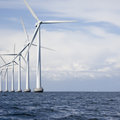
As the research partner in the so-called Hollandse Kust Noord (HKN) project, TU Delft is playing a significant role. Once the wind farm has been built, researchers, led by Professor Jan-Willem van Wingerden, will be able to test their findings regarding wind energy in practice, and the amount of energy generated by the wind farm will be maximised.
29 July 2020
TU Delft opens up 16 positions for Assistant Professors in AI (related) research

TU Delft announced it is recruiting 16 talented researchers to become a member of a thriving Artificial Intelligence (AI) community.
29 July 2020
TU Delft students reveal hidden inscriptions from NSB leader
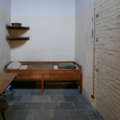
Led by Professor Joris Dik, a group of TU Delft bachelor's students was able to discover the secrets of this part of the wall without damaging it. The students’ graduation thesis was published this week in academic journal Heritage Science.
17 July 2020
Physics course eases the transition to university for secondary school students
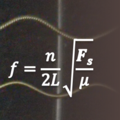
13 July 2020
Never fall again thanks to backpack-like wearable robot
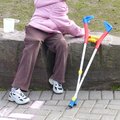
Balance aids currently used in daily life and rehabilitation clinics are helpful but far from perfect. Canes, walkers, crutches, and handrails modify posture and prevent the hands from being used during activities like opening doors, carrying shopping, or answering the telephone. Also more sophisticated tools like mobile bodyweight support systems or robotic gait trainers are bulky or can only be used in specific environments. Andrew Berry, Daniel Lemus and Saher Jabeen, researchers BioMechanical Engineering at TU Delft, led by Professor Heike Vallery, developed a backpack-like wearable robot to provide balance support during rehabilitation; the GyBAR. Fully contained within the backpack is a gyroscopic actuator – a spinning disc repositionable with electric motors – to provide hands-free balance support in multiple activities and environments. The results of the first experiments with human subjects and potential end-users have been published in Nature Scientific Reports.
13 July 2020
Year of the Lecturer 2020: a unique way to say ‘Thank you!’
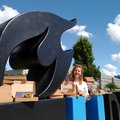
Because of the special period in recent months all TU Delft Lecturers have been put in the spotlight by the students.
02 July 2020
Mechanical engineering students design inventive pack
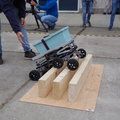
The WB62 student group has won the Mechanical Engineering Design Contest with its pack dog ‘The Scarab’.
30 June 2020
Historic floods reveal how salt marshes can save lives in the future
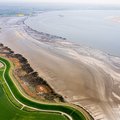
Coastal wetlands like salt marshes are increasingly recognized as valuable natural defenses that protect coasts against strong wave attacks.
30 June 2020
New software brings quantum network design to users around the world
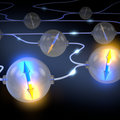
NetSquid, a specialized simulator for quantum networks has been made freely available for non-commercial users. In development by QuTech since 2017, the software is the first of its kind to model timing effects using discrete events. NetSquid allows researchers around the world to accurately predict the performance of quantum networks and modular quantum computing systems. Such simulations are essential to design scalable quantum systems, and exploit them for radically new types of computation and communication technologies.
25 June 2020
First detector array delivered to GUSTO mission
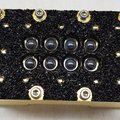
The first detector array for NASA's GUSTO mission has passed its pre-shipment review and is now shipping to the University of Arizona for integration into the balloon observatory. SRON together with TU Delft develops GUSTO's three 8-pixel-arrays, for the frequencies 4.7, 1.9 and 1.4 terahertz. They have now finished the array for the 4.7 terahertz channel—the most challenging part. GUSTO is a balloon mission that will measure emissions from cosmic material between stars.
